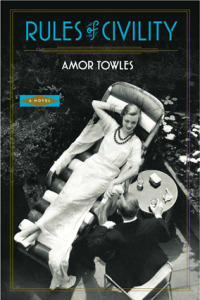Machine Man by Max Barry
 Saturday, July 30, 2011 at 3:50PM
Saturday, July 30, 2011 at 3:50PM 
Published by Vintage on August 9, 2011
If a body is just a collection of replaceable parts, if love is just a sensation induced by a swirl of brain chemicals, then what is man?
Charles Neumann loves machines; he's a mechanical engineer who, as a child, dreamed of being a train. As a teen, after nearly being run over by a guy driving a Viper -- a guy who then abused him for not getting out of the way -- Neumann wondered when it was that beautifully engineered machines like the Viper became superior to humans, who often wind up being useless jerks. Now an adult, Neumann has a big brain, no social skills, and an isolated life. When he loses a leg in a lab accident, the injury only encourages his inclination to remain apart from others. Given a choice of prosthetic replacements and seeing nothing he likes, Neumann tries out the state-of-the-art model, breaks it, then decides to build one of his own: a leg that not only walks by itself, but decides for itself how to get where it needs to go. Finally happy with the design of his mechanical leg, he becomes dissatisfied with the biological one. You can guess what he does next.
Man's dependence on technology and what that dependence does to us is Machine Man's driving theme. Machine Man also takes a satirical look at corporate willingness to sacrifice human concerns for the sake of profit. Neumann's employer (Better Future) has been reluctant to develop medical technology because medical advances might render the technology obsolete. If, after investing in the development of an artificial heart, medical researchers cured heart disease, Better Future would view that public health benefit as a disaster. Artificial replacements for healthy limbs and organs, however, offer unlimited growth potential. Just as consumers throw away perfectly good cell phones because the new model is superior, consumers will want the latest arm or spleen because it's trendy and sexy to own one. Max Berry stretches that premise to absurd lengths while making an important point: as long as markets drive technology, corporations will spend more money designing sophisticated game controllers (because the market is huge) than they will spend to increase the functionality of prosthetic limbs (because the market is limited). Desire trumps utility in a market economy -- an economic truth that lends itself to Barry's humanistic brand of comedy.
There are some very funny moments in Machine Man: the scientists' certainty that "physical attractiveness was inversely correlated with intelligence, because look at us"; a conversation about the importance of passing the salt before performing an unrelated task. Barry has fun with workers compensation payments for amputations (it's economically beneficial to lose fingers one at a time rather than losing a whole hand) and with middle managers who try to protect a corporation from legal liability by using politically correct jargon while shafting its employees. Barry repeatedly and thoroughly skewers the corporate mentality. By the midpoint of this novel I was laughing out loud. Frequently.
In the end, however, the story is about Neumann. Barry weaves an offbeat love story into the plot -- it has to be offbeat because Neumann is such a poor candidate for love -- but love requires sacrifice. How much will a man who values elegantly designed machinery more than biologically limited people be willing to sacrifice for love? That's the question that gives the novel heart as well as humor.
This isn't the funniest novel I've ever read (Catch-22 and A Confederacy of Dunces share that honor) nor is it the most profound (not even in the top hundred) but it tells a wickedly smart, emotionally appealing story that kept me laughing until the last page. There's an over-the-top aspect to this novel that will put off some readers, but if you believe in the possibility of telling a serious story that isn't meant to be taken seriously, you'll probably enjoy Machine Man.
RECOMMENDED



